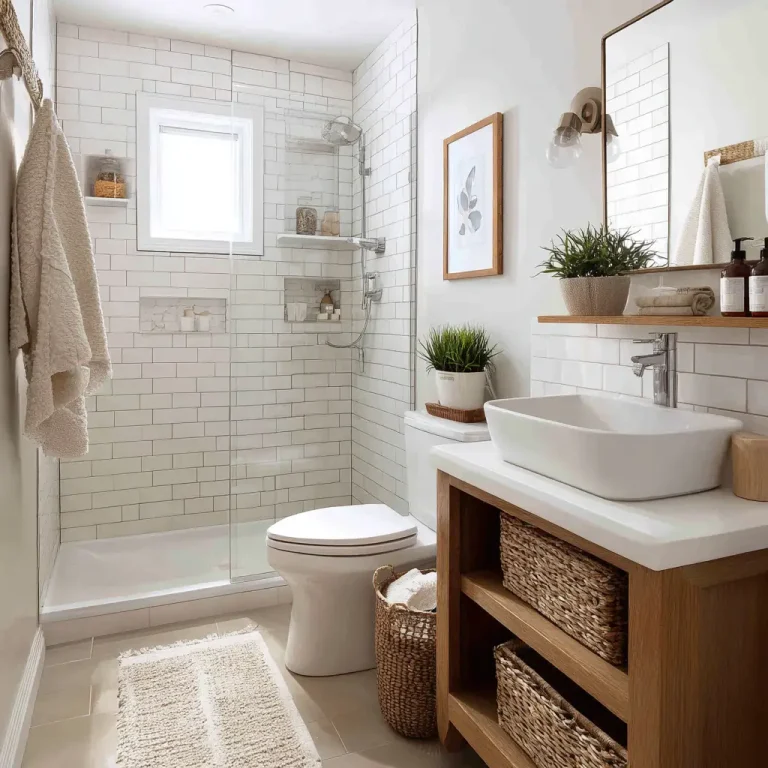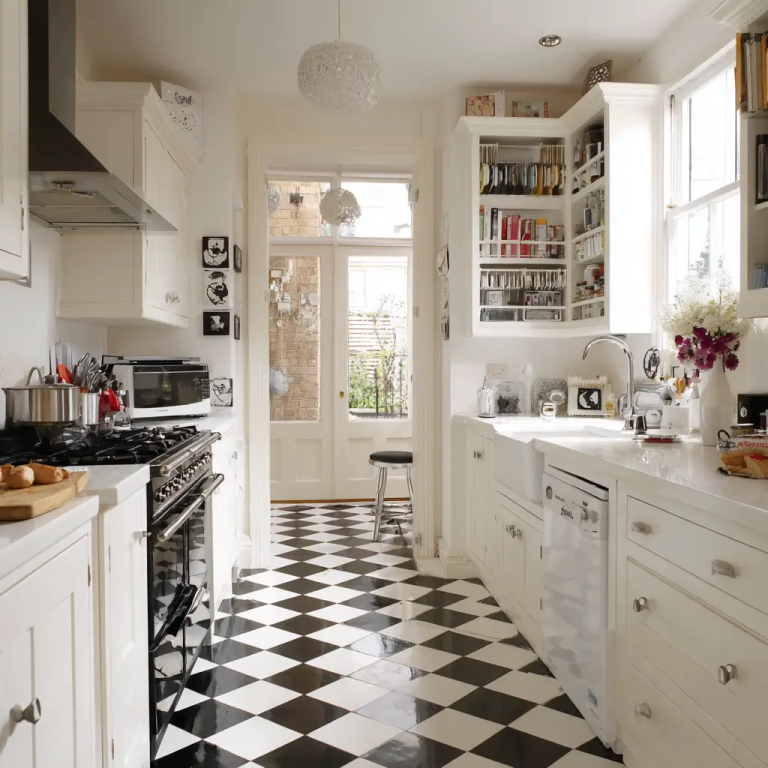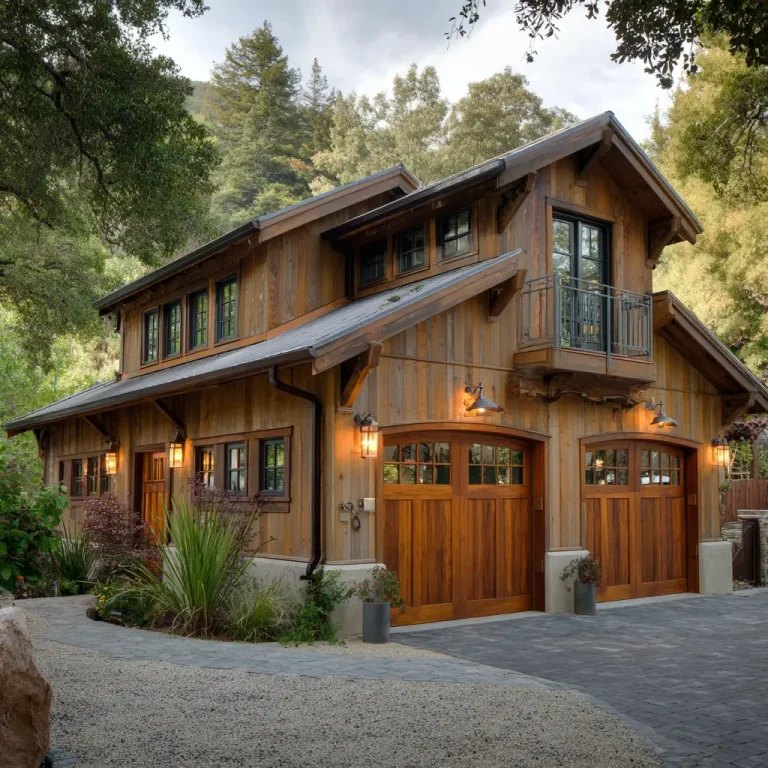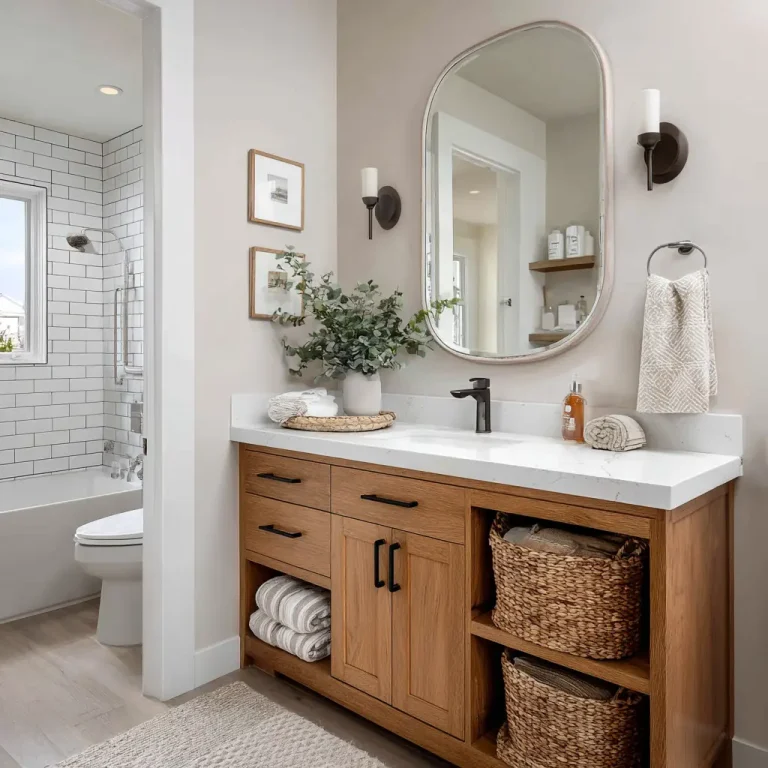Discover the Beauty of 20 Breathtaking Flower Gardens Around the World
Flower gardens have the unique ability to enchant, calm, and awaken the senses. For centuries, people have cultivated flowers not just for beauty, but also for culture, storytelling, and healing. From perfectly manicured European palace grounds to wild, free-flowing floral landscapes in Asia, flower gardens offer more than just a visual treat—they offer perspective, emotion, and peace. Here are 20 stunning flower gardens from around the globe that capture the very heart of nature’s artistry.
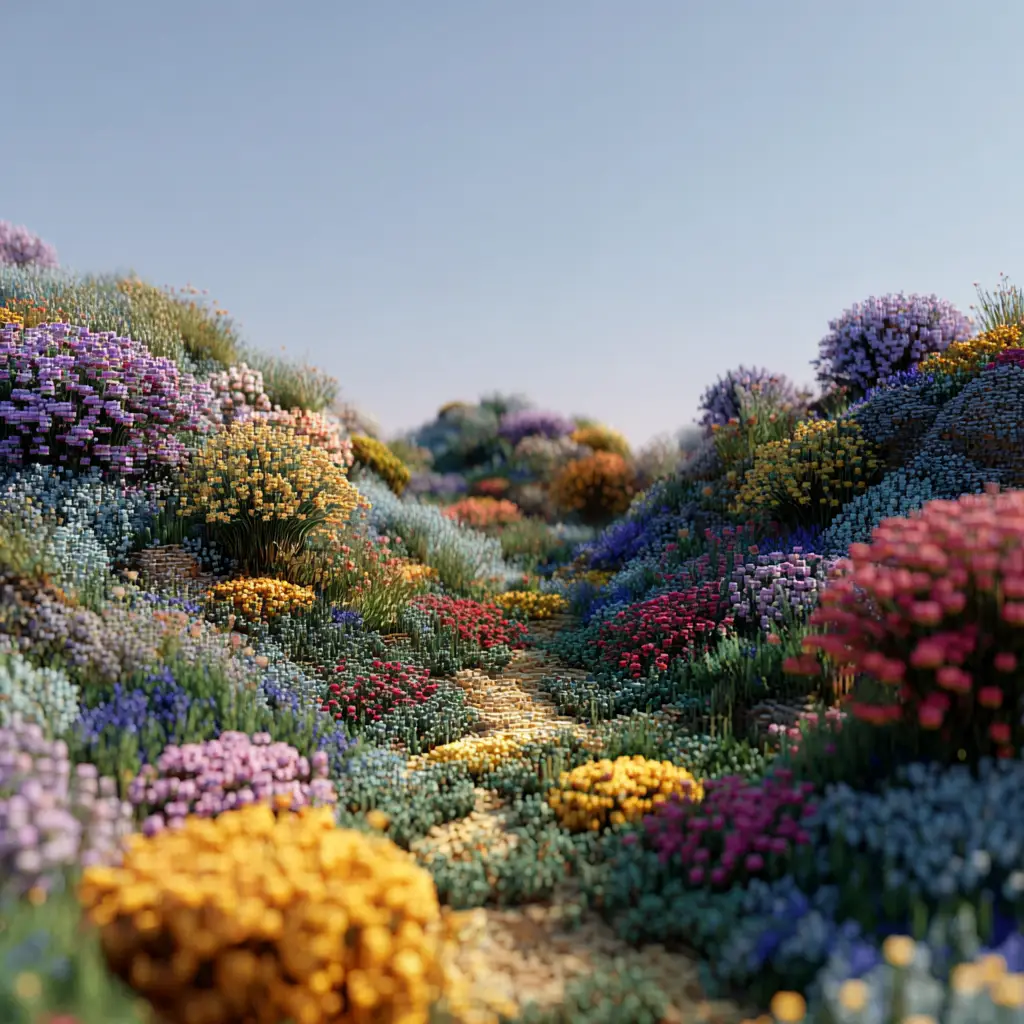
1. Keukenhof Gardens, Netherlands
Known as one of the largest flower gardens in the world, Keukenhof is located in Lisse, Netherlands, and covers around 79 acres. Open only during the spring, this garden bursts into a sea of color with over 7 million bulbs, especially tulips in every variety imaginable. There are also daffodils, hyacinths, and orchids, all arranged in breathtaking patterns. The garden also hosts art installations, floral shows, and boat rides through nearby bulb fields.
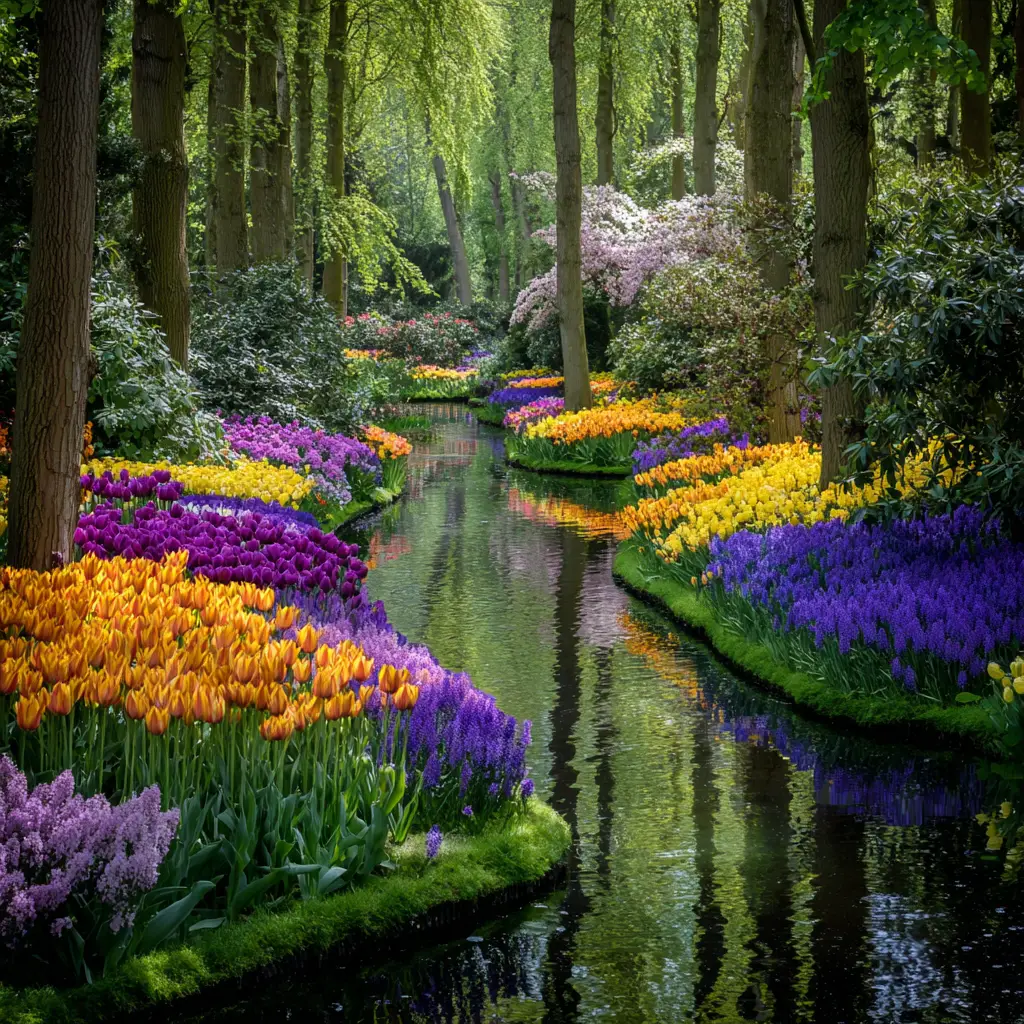
2. Butchart Gardens, Canada
This 55-acre garden on Vancouver Island is one of Canada’s top horticultural treasures. What began as a limestone quarry was transformed in the early 1900s by Jennie Butchart into a lush sanctuary. Today, the gardens feature themed areas such as the Italian Garden, Rose Garden, and Japanese Garden. The vibrant flower beds, meandering pathways, and summer evening fireworks make it a magical spot year-round.
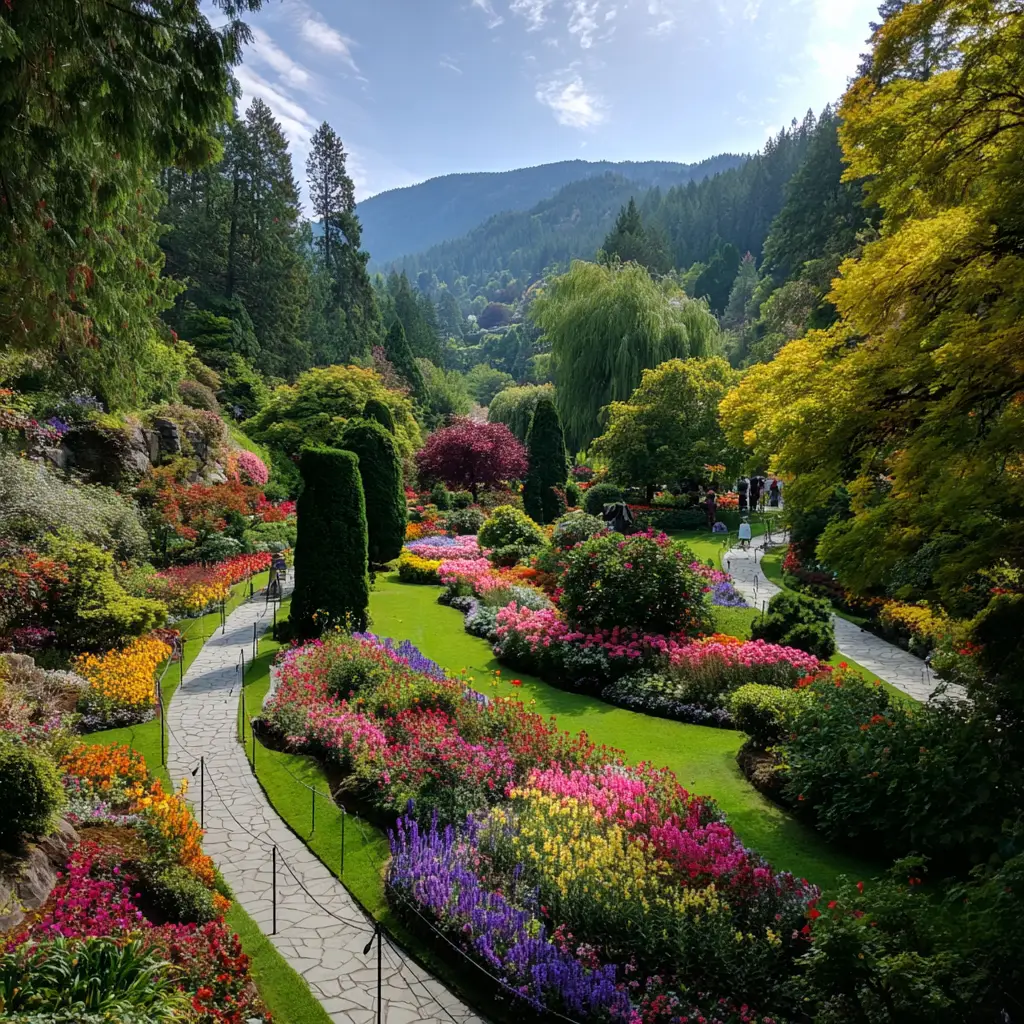
3. Gardens by the Bay, Singapore
Gardens by the Bay blends futuristic design with natural splendor. The Flower Dome is one of the largest climate-controlled greenhouses in the world and contains exotic flowers from Mediterranean climates. In contrast, the Supertree Grove outside features vertical gardens lit with nightly light shows. The entire complex is a model of urban eco-architecture, where beauty and sustainability coexist.
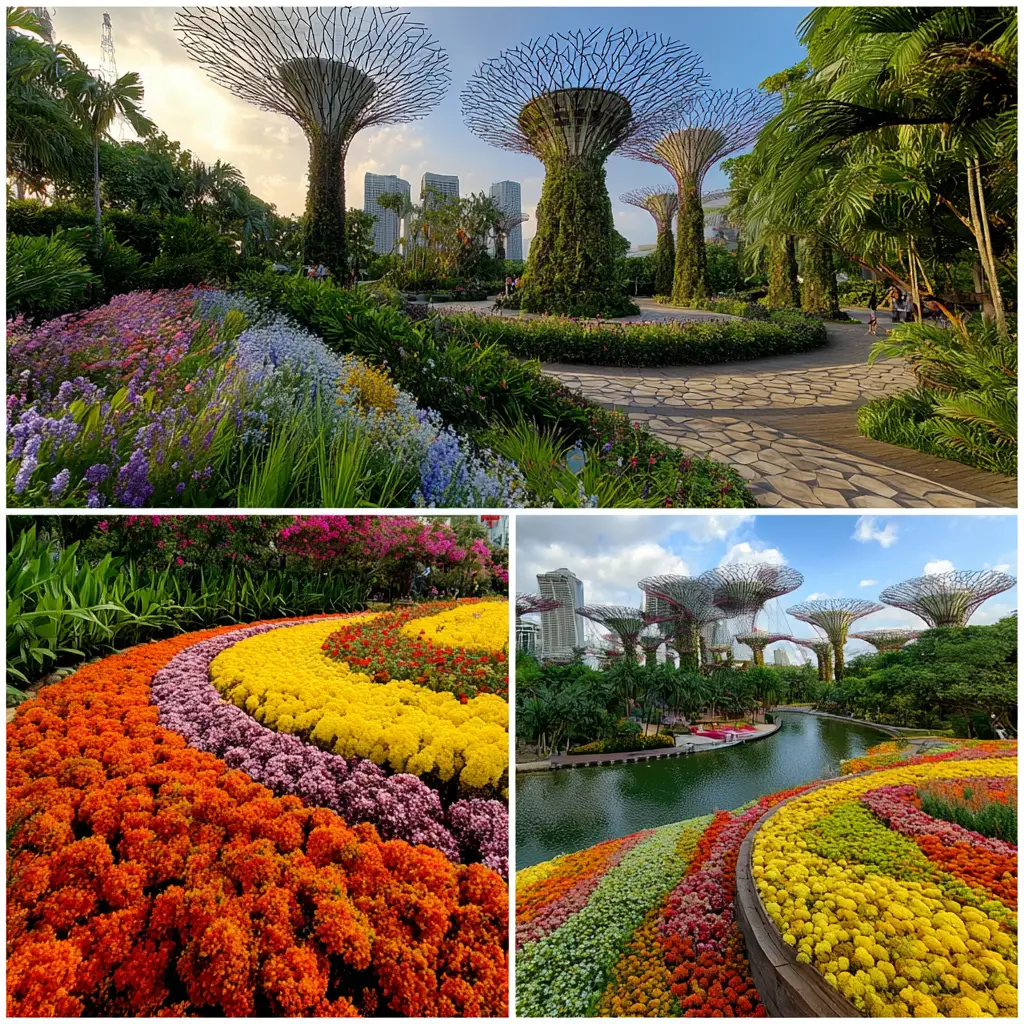
4. Claude Monet’s Garden, France
Located in the quaint town of Giverny, this garden was created and cultivated by impressionist painter Claude Monet himself. Split into a flower garden called Clos Normand and a Japanese water garden, it brings his paintings to life—especially the famous water lilies. Visitors can walk the same paths Monet did, surrounded by climbing roses, vibrant irises, and the iconic green bridge covered in wisteria.
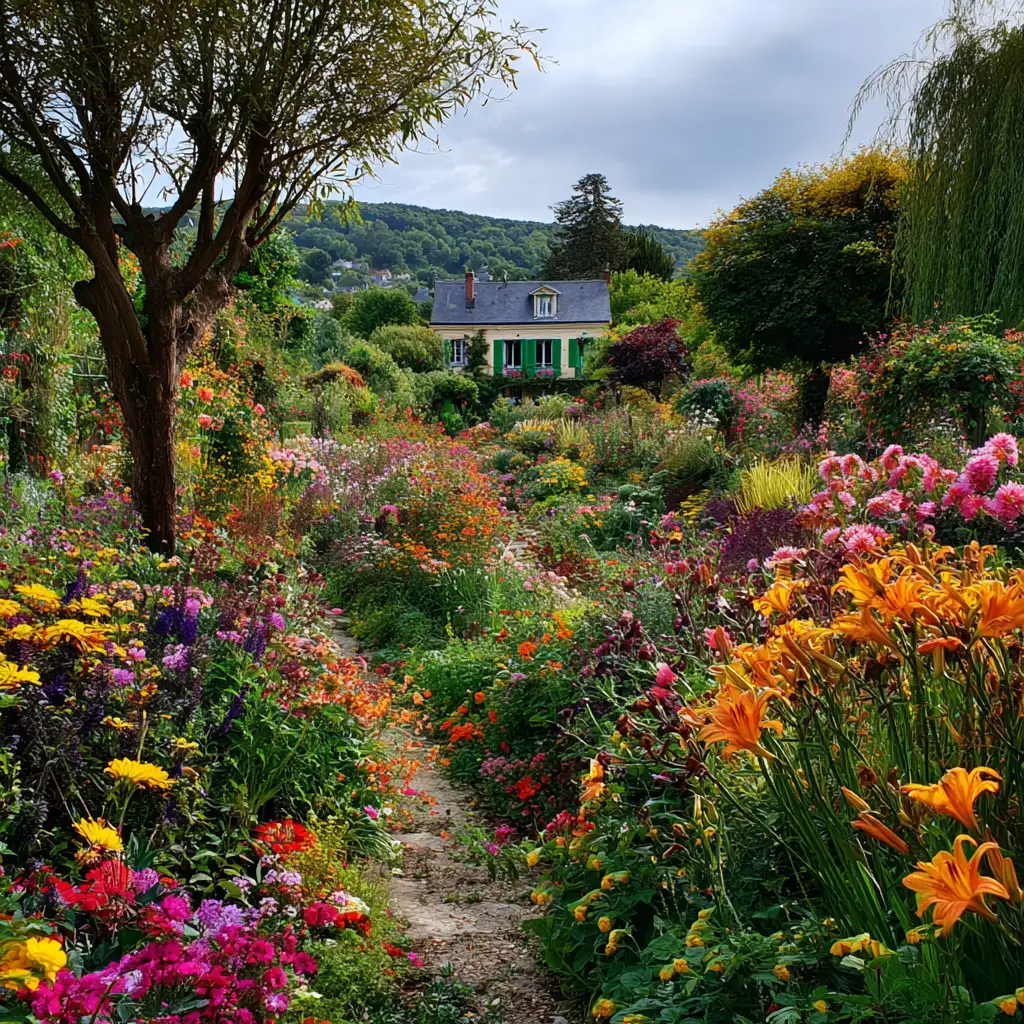
5. Dubai Miracle Garden, UAE
In the middle of the desert, the Dubai Miracle Garden stands as a surreal floral wonderland. Spread over 72,000 square meters, it features floral sculptures, heart-shaped arches, and entire houses made of blooms. With over 150 million flowers—including petunias, marigolds, and sunflowers—the garden reinvents its design every season, creating a new experience for visitors each year.
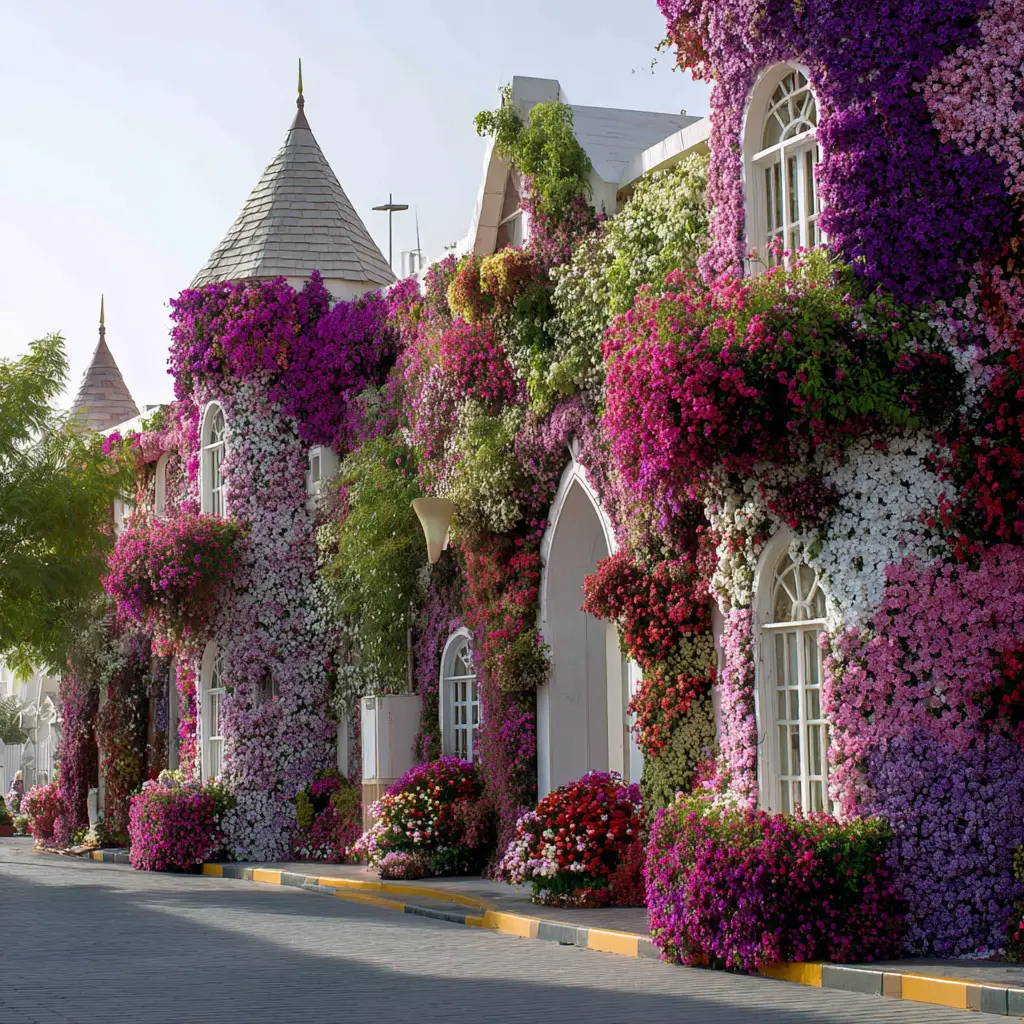
6. Ashikaga Flower Park, Japan
This lesser-known gem in Tochigi Prefecture is most famous for its dreamlike tunnels of wisteria. The park features over 350 wisteria trees, some more than 150 years old, draped in purple, white, pink, and yellow blossoms. During the Wisteria Festival in late April to May, the garden transforms into a fairytale realm with romantic lights illuminating the blooms at night.
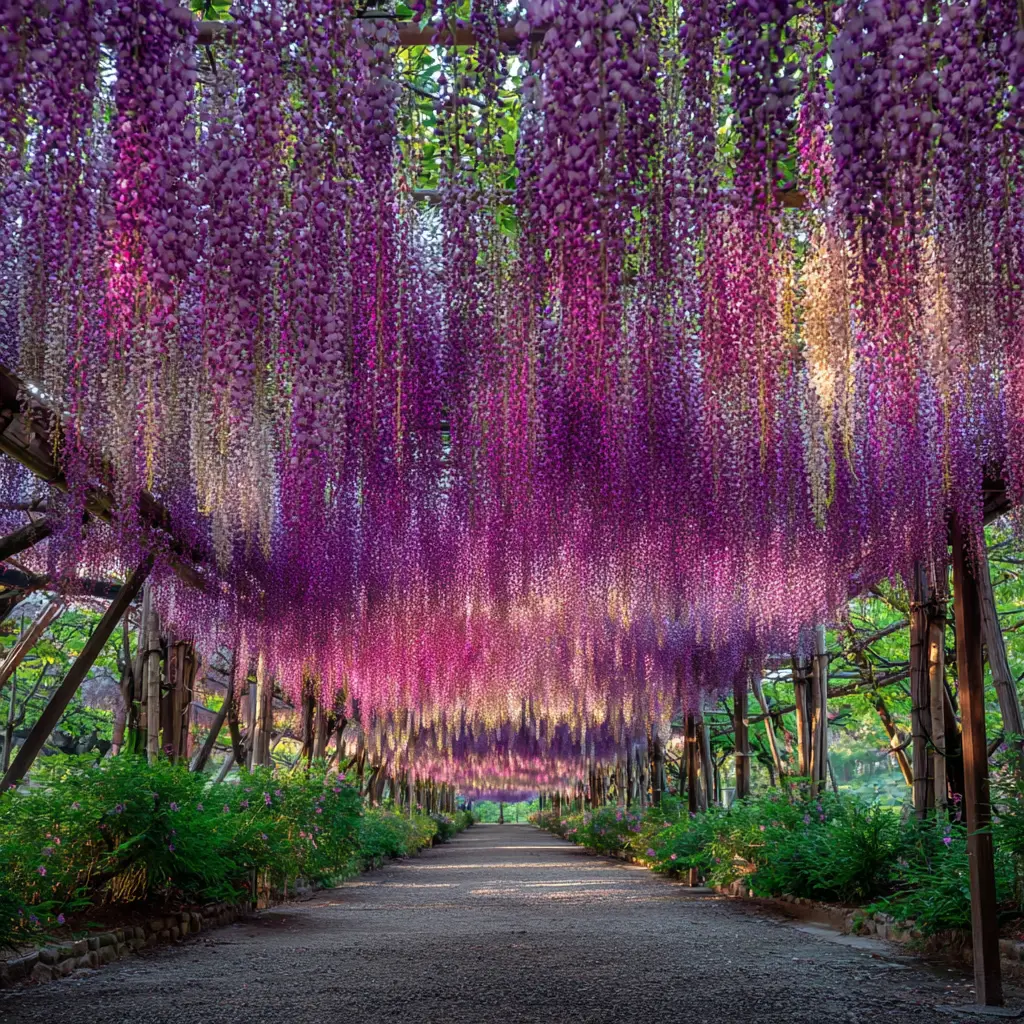
7. Longwood Gardens, USA
Longwood Gardens in Pennsylvania is a former estate turned botanical powerhouse. With over 1,000 acres, it offers everything from formal flower beds and a topiary garden to indoor conservatories with rare orchids and tropical blooms. Its fountains, seasonal flower shows, and educational programs make it a destination for gardeners, families, and nature enthusiasts alike.
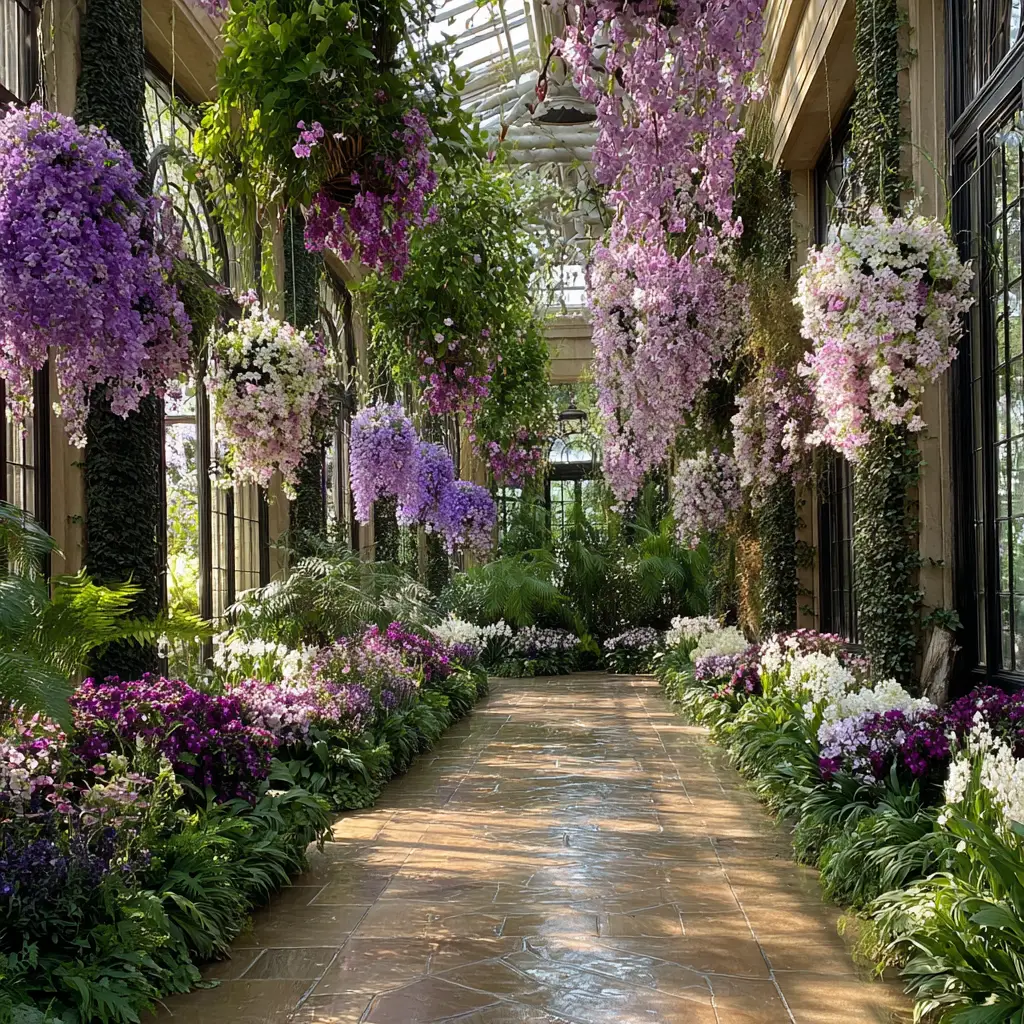
8. Kirstenbosch National Botanical Garden, South Africa
Set against the majestic backdrop of Table Mountain in Cape Town, Kirstenbosch is internationally acclaimed for showcasing South Africa’s indigenous plant life. You’ll find fynbos, proteas, cycads, and more than 7,000 species native to the region. Walking trails, a canopy walkway, and art sculptures give visitors a multisensory experience of Africa’s floral richness.
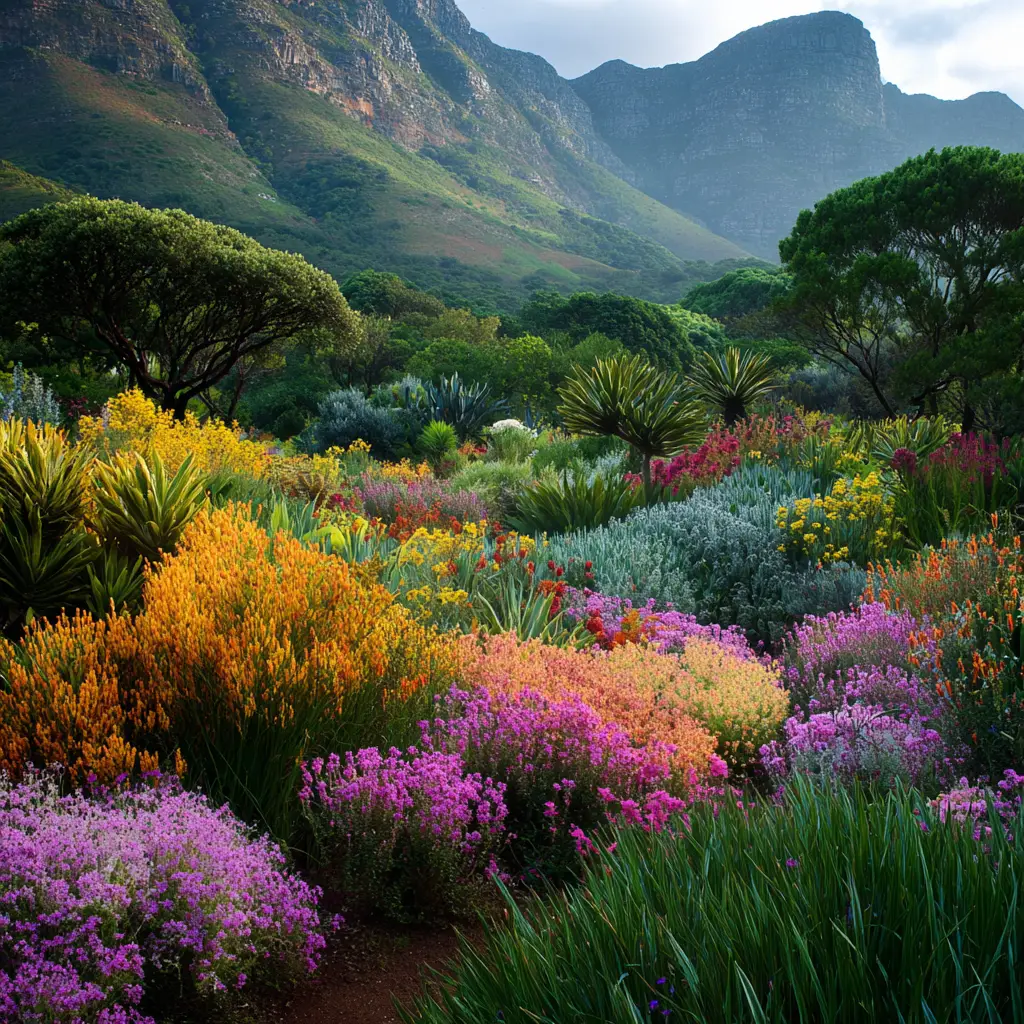
9. Nong Nooch Tropical Garden, Thailand
Located in Pattaya, this vast garden combines traditional Thai design with bold horticultural arrangements. It features themed gardens like the Orchid Garden, French Garden, and Butterfly Hill. Cultural performances, elephant shows, and boat rides make it a full-day destination. The blend of tropical plants, floral displays, and Thai architecture makes it vibrant and educational.
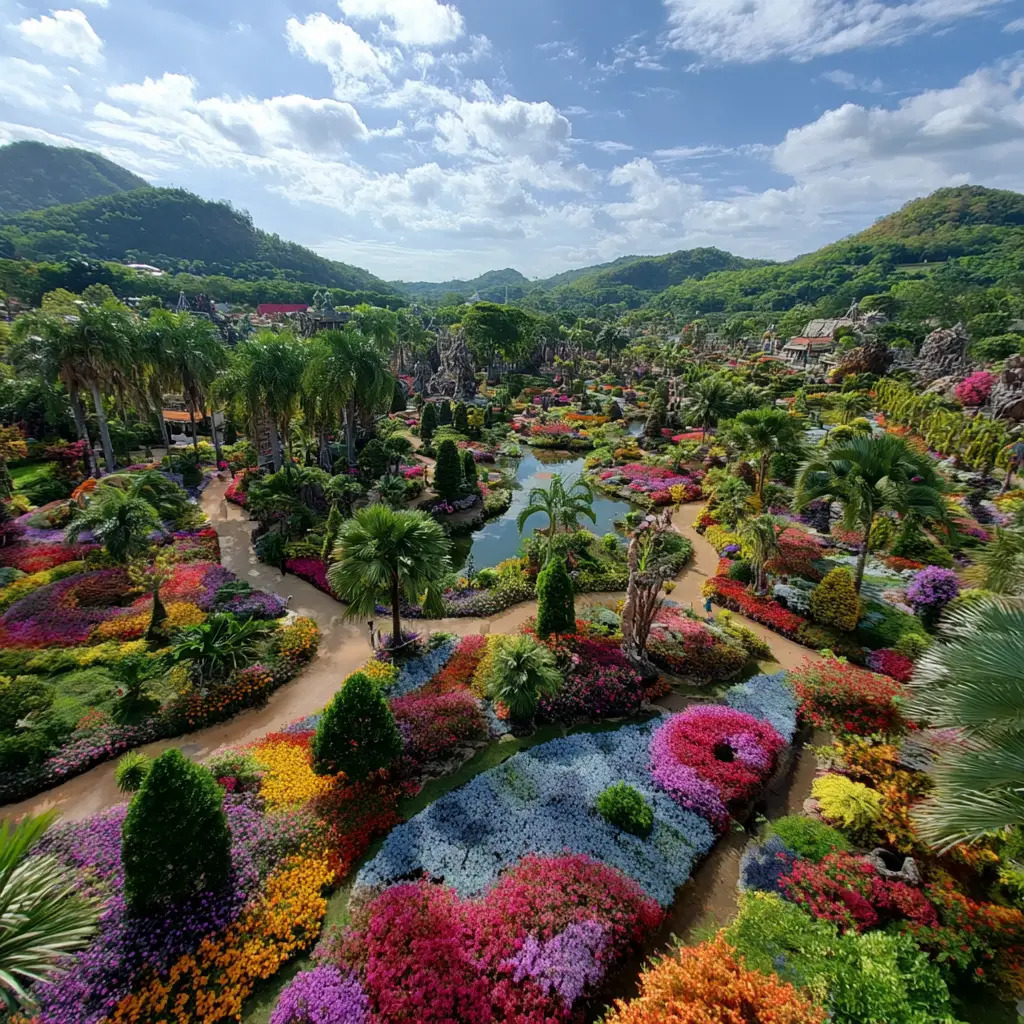
10. Mount Tomah Botanic Garden, Australia
Situated in the Blue Mountains near Sydney, Mount Tomah (now known as Blue Mountains Botanic Garden) specializes in cool-climate flora. It offers a rich display of rhododendrons, camellias, and alpine plants. The panoramic view from the garden’s higher elevation is breathtaking, with clear air and birdsong adding to the immersive experience.
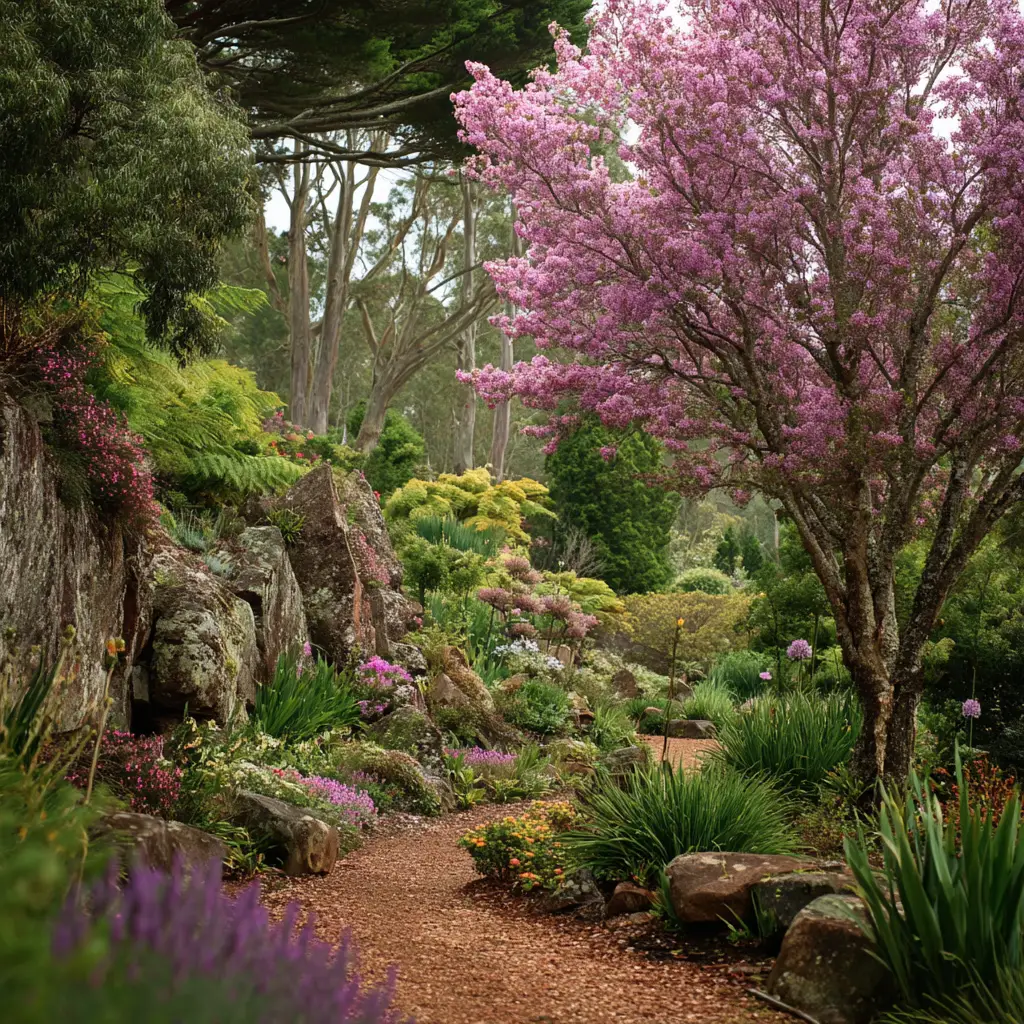
11. Villa d’Este Gardens, Italy
A UNESCO World Heritage Site in Tivoli, the Villa d’Este Gardens are a perfect example of Renaissance landscaping. Built in the 16th century, they are adorned with hundreds of fountains, statues, and manicured flower beds. Roses, citrus trees, and classical stone walkways wind through the historic estate, offering a romantic and timeless atmosphere.
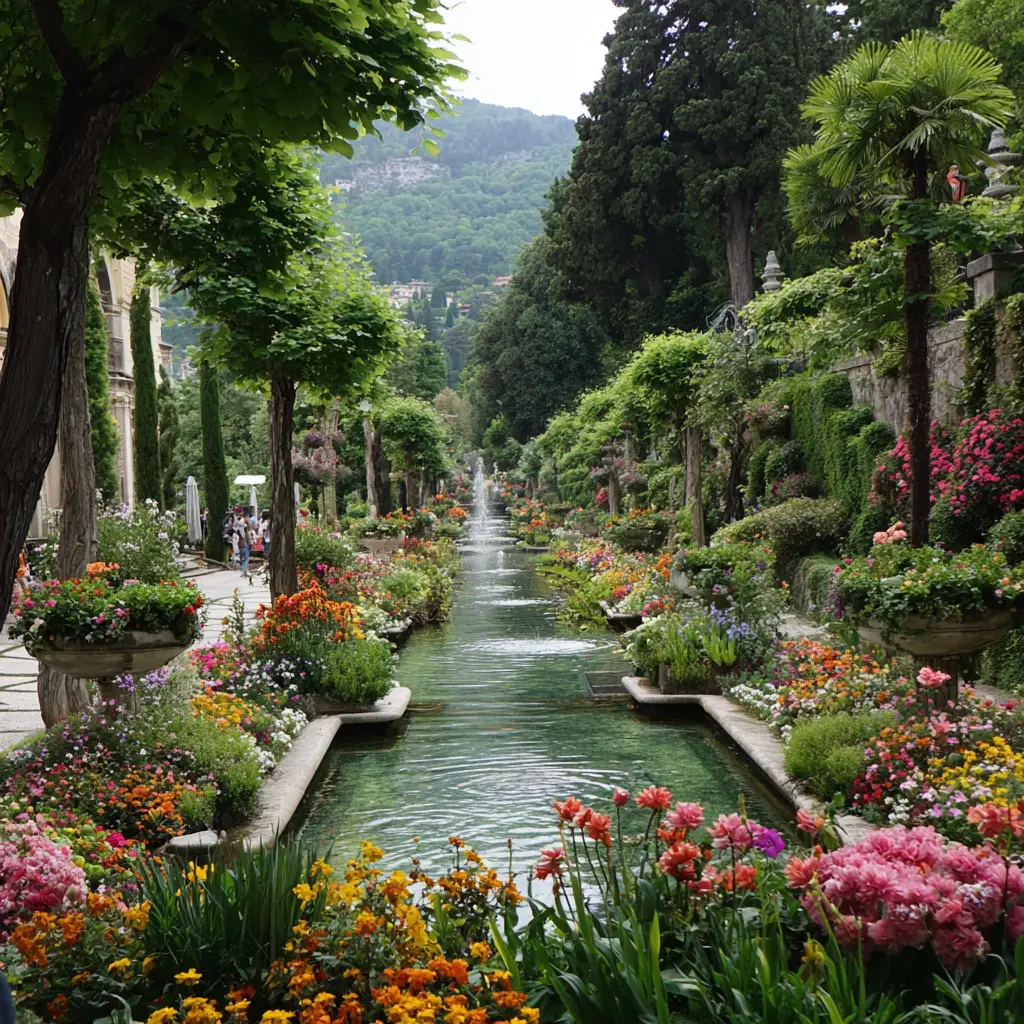
12. Hitachi Seaside Park, Japan
This garden in Ibaraki Prefecture is famous for its seasonal flower landscapes. In spring, 4.5 million blue nemophila flowers blanket the hills, while summer brings vibrant sunflowers and autumn turns the kochia bushes a brilliant crimson. The park is vast, with cycling paths and viewpoints that let you take in the surreal, shifting colors across the landscape.
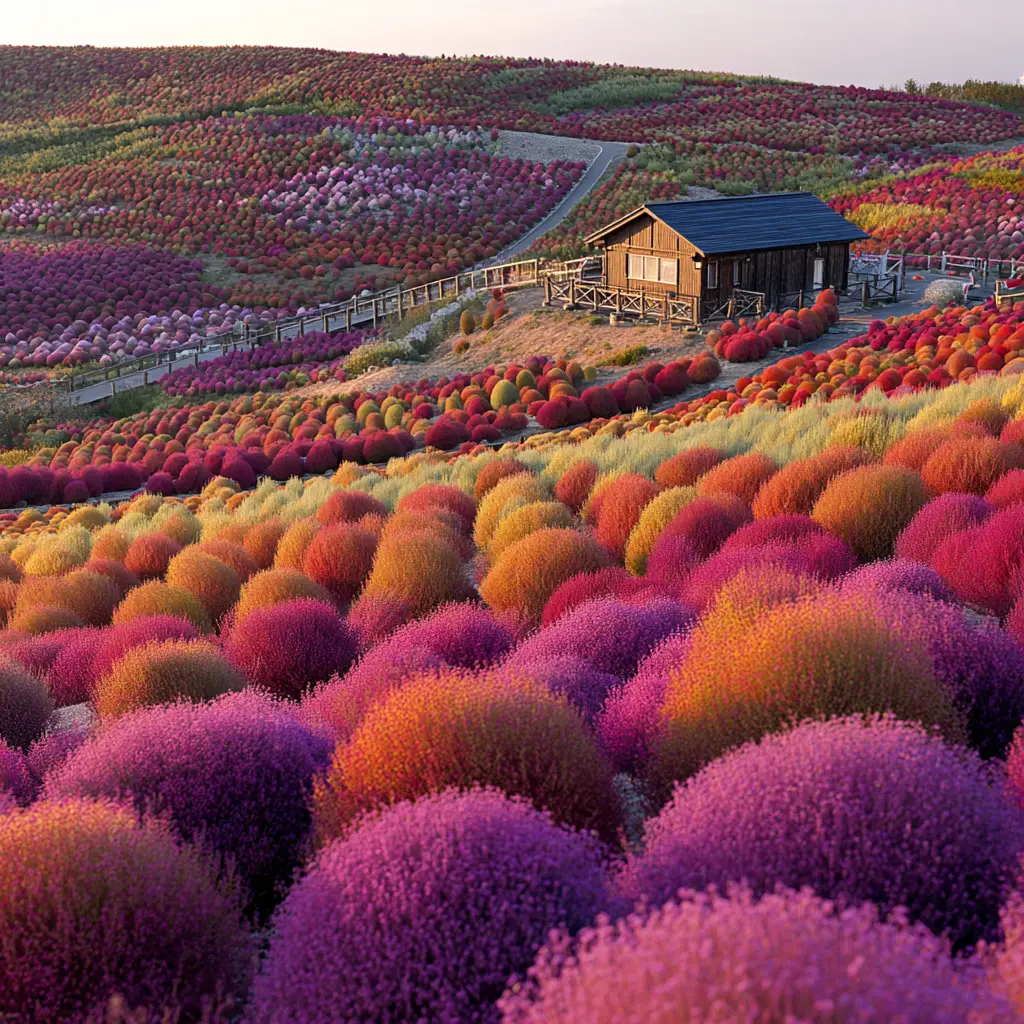
13. Royal Botanic Gardens, Kew, UK
Spanning over 300 acres, Kew Gardens in London is a global center for plant science and conservation. Home to over 50,000 plant species, the gardens offer Victorian glasshouses, a treetop walkway, and the Princess of Wales Conservatory. Seasonal highlights include bluebells in spring and vibrant autumn foliage, making it a must-see throughout the year.
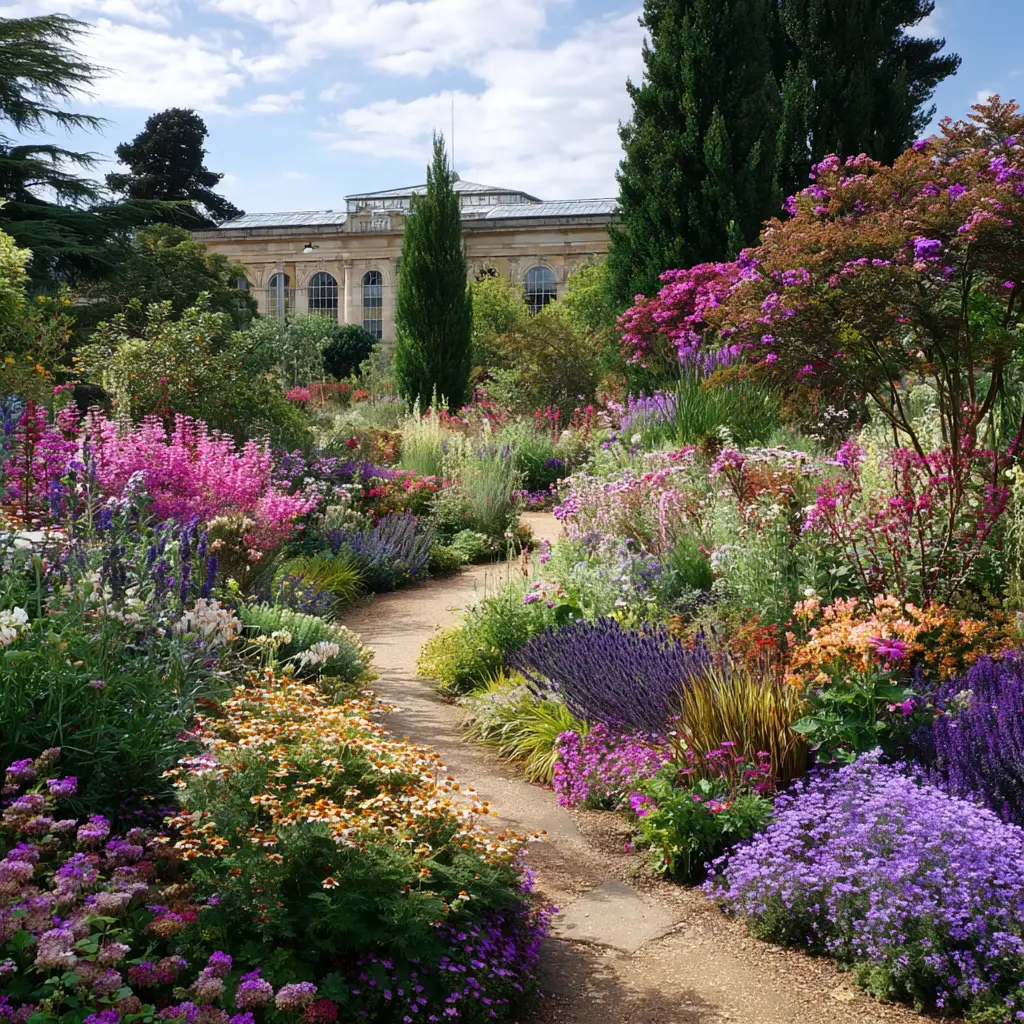
14. Kenrokuen Garden, Japan
Located in Kanazawa, Kenrokuen is one of Japan’s most celebrated gardens, embodying six essential gardening elements: spaciousness, seclusion, antiquity, water features, scenic views, and artifice. With cherry blossoms in spring, irises in summer, and maple foliage in autumn, every season offers a different type of tranquility.
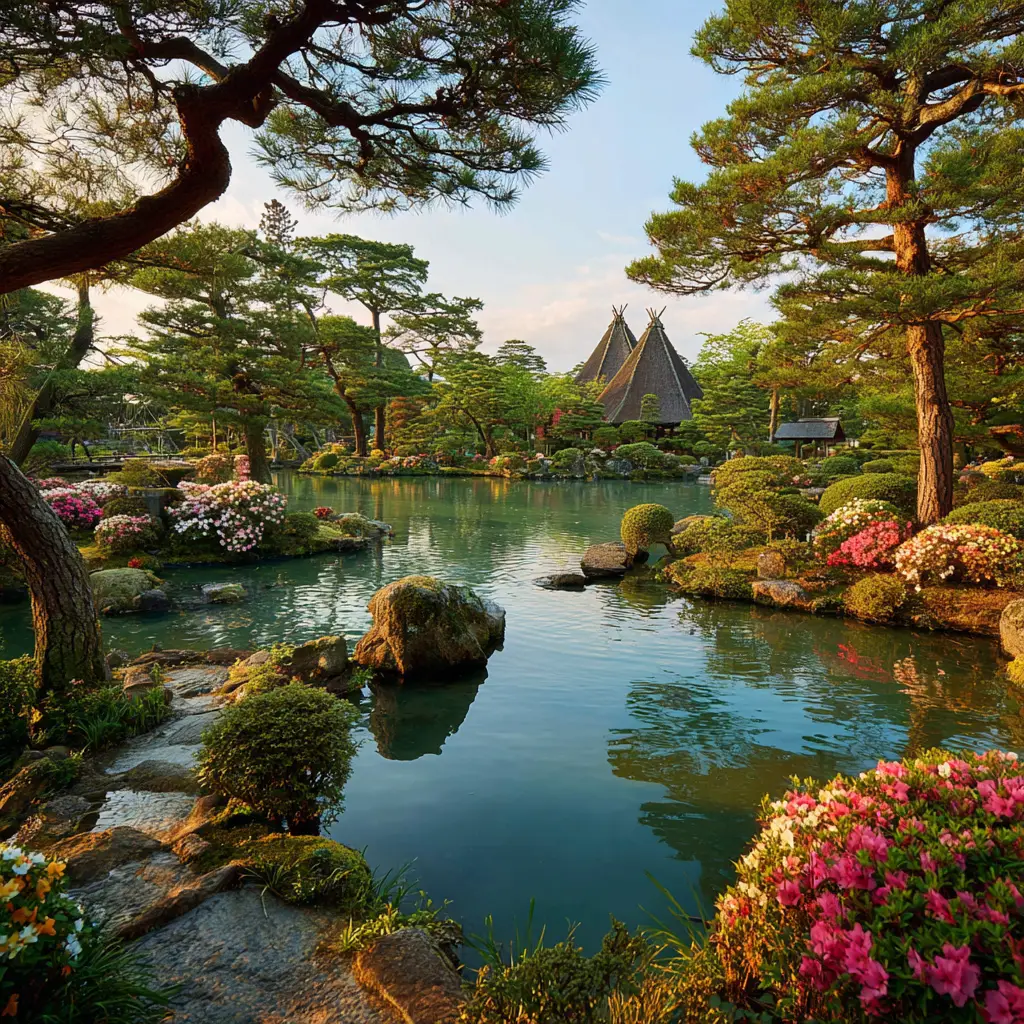
15. Jardin Majorelle, Morocco
Once owned by designer Yves Saint Laurent, this garden in Marrakech is a bold blend of cobalt blue buildings, exotic plants, and serene pools. Created by French painter Jacques Majorelle, the garden contains cacti, bougainvillea, palms, and bamboo, all arranged around fountains and Moroccan tiles that highlight the region’s artistry.
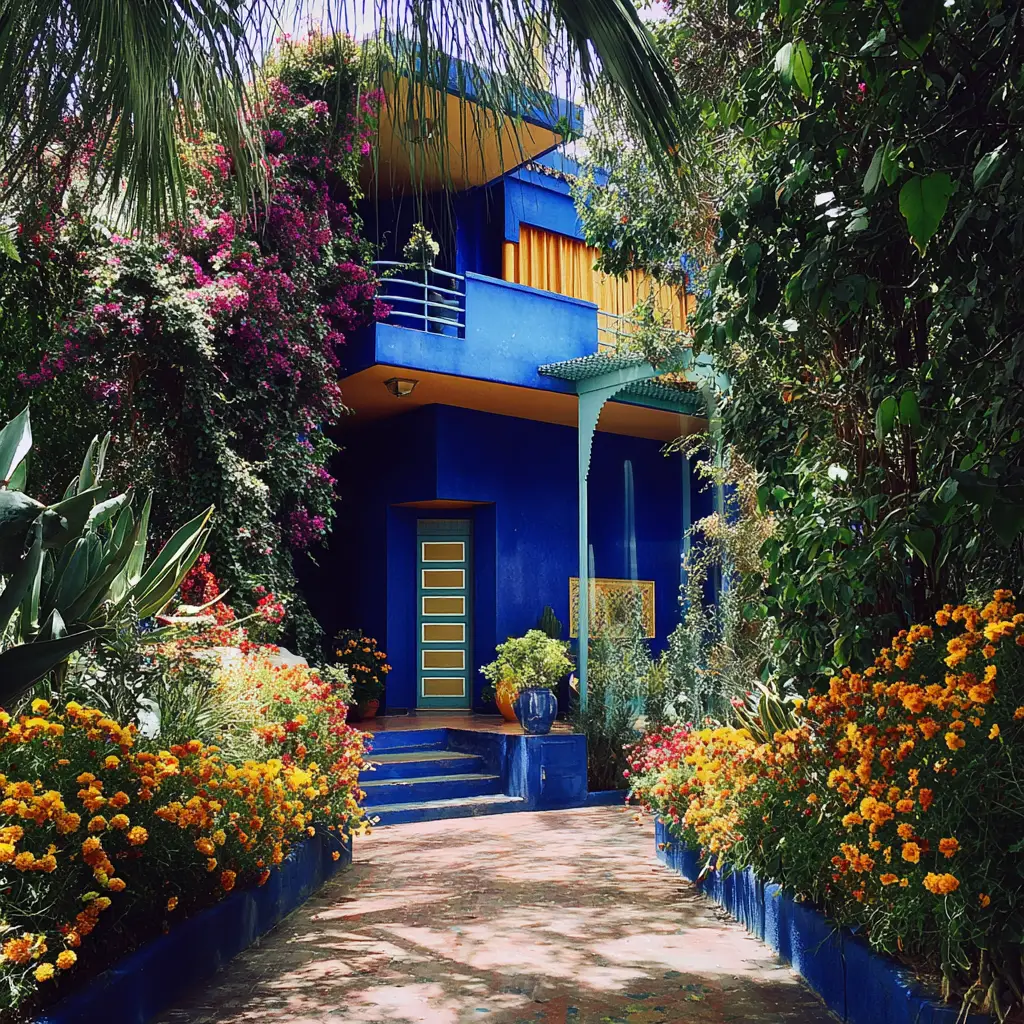
16. Desert Botanical Garden, USA
In Phoenix, Arizona, this garden offers a striking contrast to traditional flower gardens. It specializes in desert plants like agave, cactus flowers, and desert marigolds, many of which bloom in vibrant colors after seasonal rains. Its trails also highlight indigenous uses of plants, offering a deep look at how desert flora sustain life.
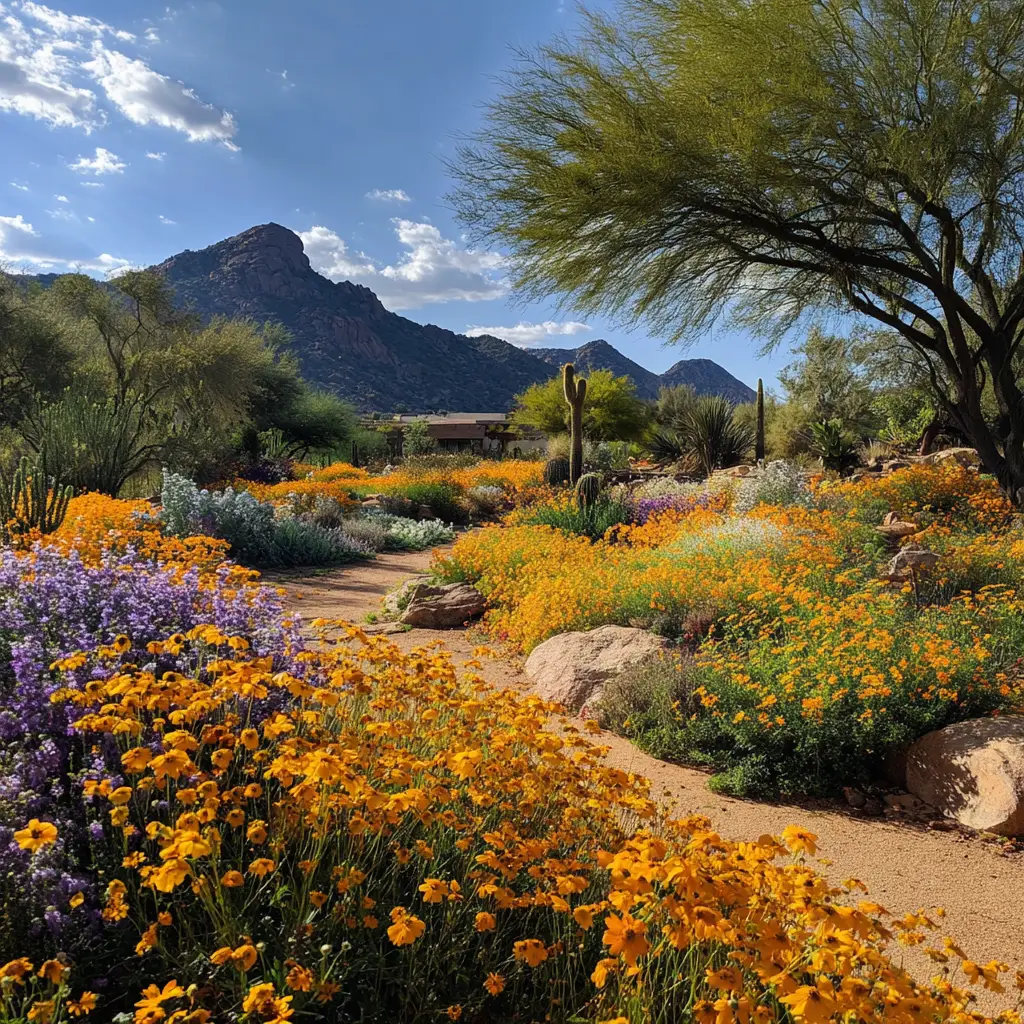
17. Giardini di Ninfa, Italy
Nestled among medieval ruins in Lazio, the Gardens of Ninfa are as poetic as they are rare. Often called the most romantic garden in the world, its layout is natural and untamed, featuring climbing roses, water lilies, and wild irises. The garden’s layout follows the contours of an abandoned medieval village, making it both a botanical and historical journey.
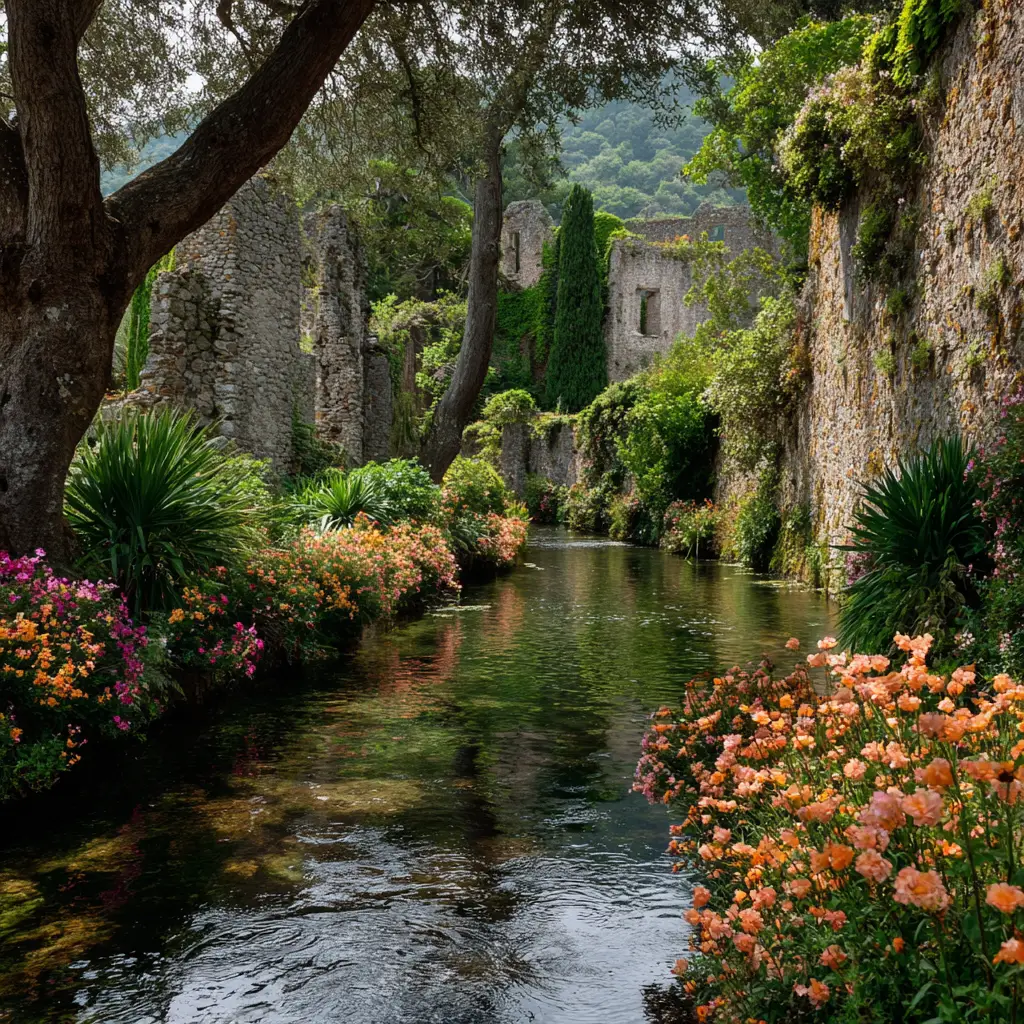
18. Versaille Gardens, France
Stretching over 2,000 acres, the Gardens of Versailles are the epitome of royal grandeur. Designed by André Le Nôtre for King Louis XIV, they feature geometric flower beds, mirror-like canals, and ornate fountains. It’s a marvel of symmetry and control, showcasing how humans can sculpt nature into works of art.
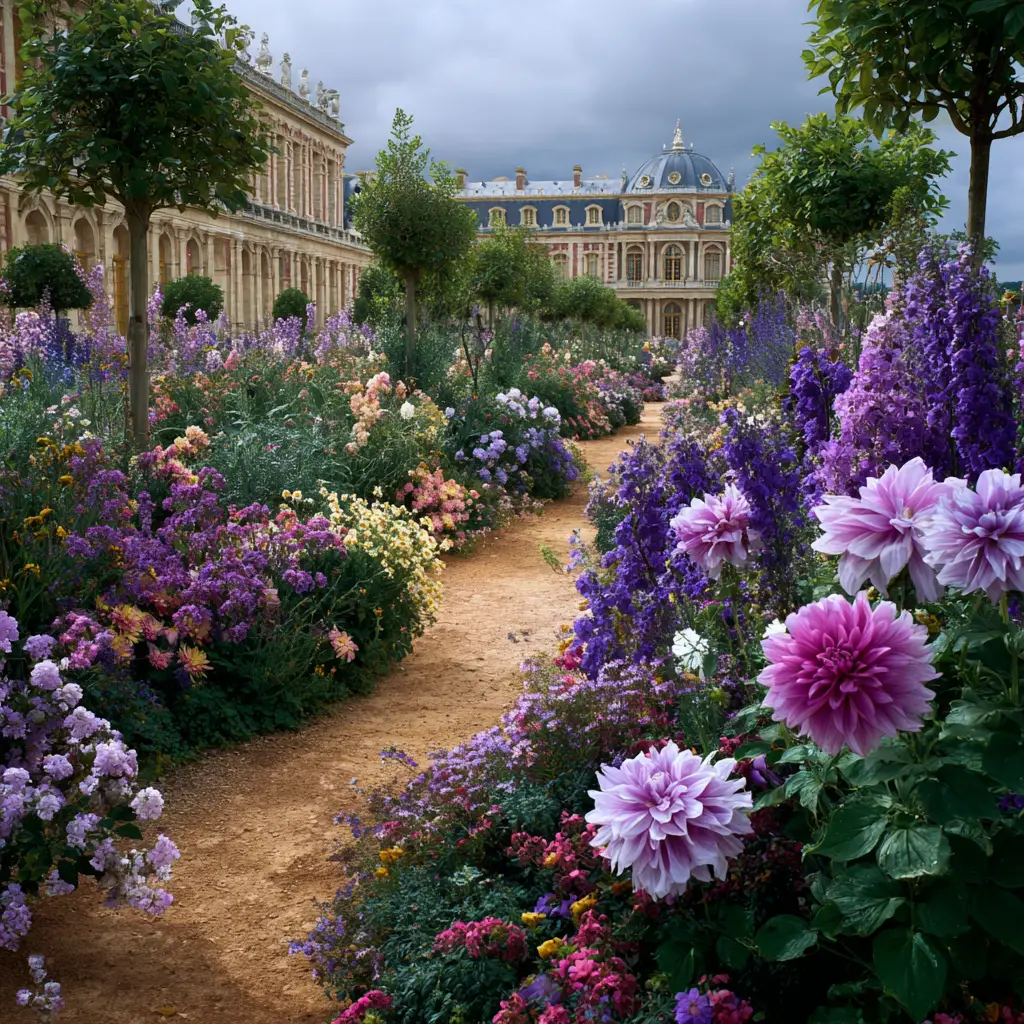
19. Singapore Botanic Gardens
A lush escape in the heart of the city, the Singapore Botanic Gardens is a UNESCO World Heritage Site known for its rich biodiversity. The National Orchid Garden features over 1,000 species and 2,000 hybrids. With tranquil lakes, swan-filled ponds, and rainforest areas, it’s both a local refuge and a global treasure.
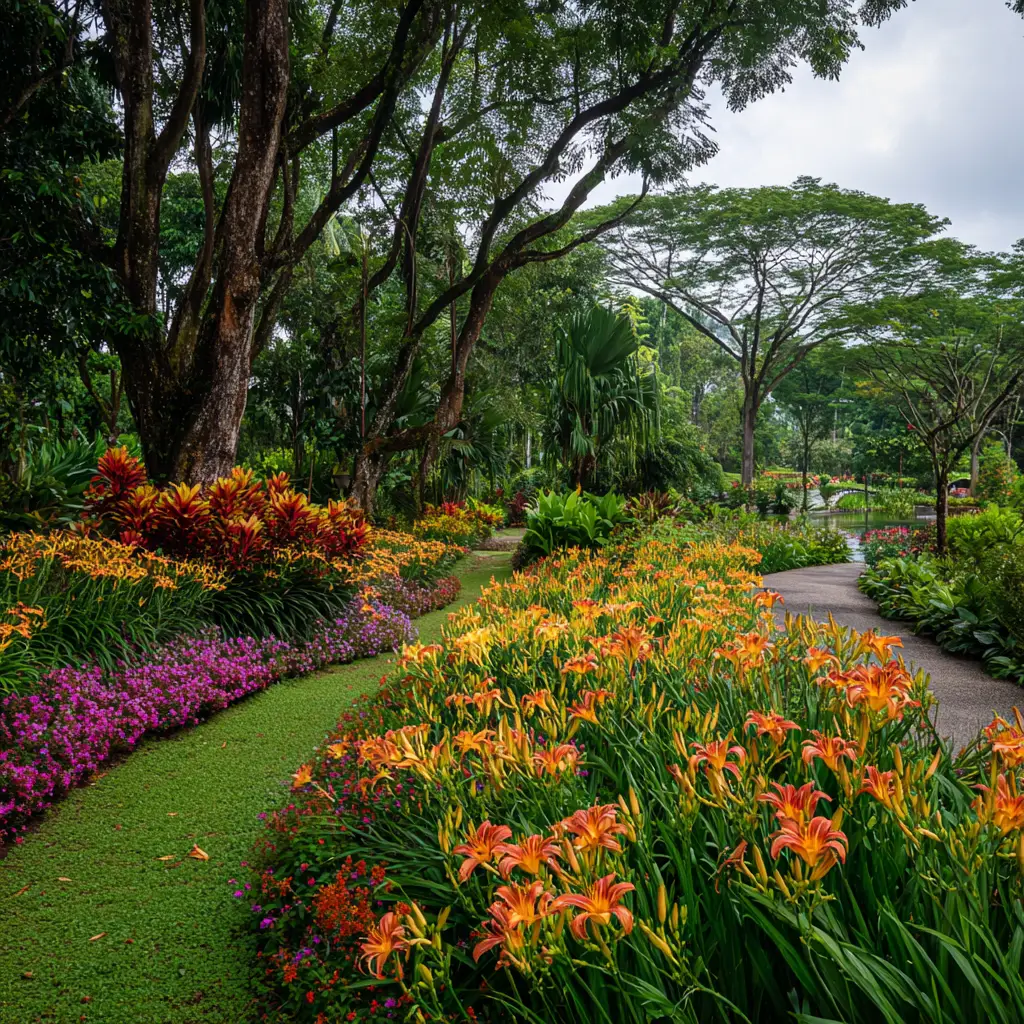
20. Mirabell Gardens, Austria
Located in Salzburg, the Mirabell Gardens are famous not only for their baroque design but also for their role in The Sound of Music. The symmetrical flower beds, mythological statues, and palace backdrop make this a picture-perfect setting for music lovers and romantic travelers alike.
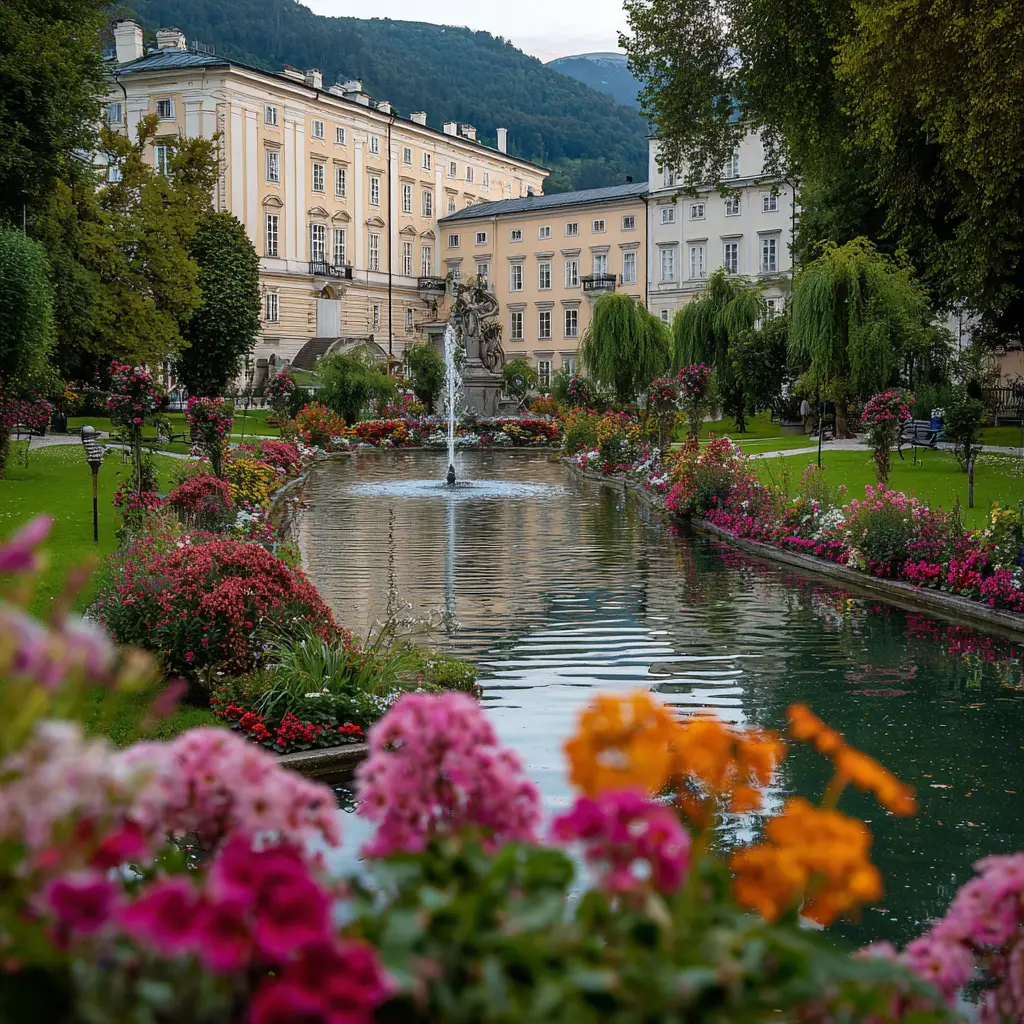
Frequently Asked Questions
What is the best time of year to visit flower gardens?
Most flower gardens bloom in spring (March to May), when tulips, cherry blossoms, and other spring flowers are at their peak. However, some tropical and desert gardens have blooms year-round, especially after rains or in controlled environments like greenhouses.
Do these gardens require entry fees?
Yes, many popular flower gardens charge entrance fees to help with maintenance and conservation. Prices vary by country and garden size. Some offer family passes, discounts for seniors or students, and even free admission on special days.
Can I start my own flower garden inspired by these?
Definitely! You can begin with easy-to-grow flowers like marigolds, petunias, or zinnias. Pay attention to your local climate, sunlight, and soil type. Consider starting small and expanding over time, perhaps even incorporating themes from gardens that inspired you.
Conclusion
Flower gardens remind us that beauty doesn’t need to shout—it can quietly grow, unfold, and surprise us with grace. Whether shaped by royal architects, painted into existence by artists, or blooming naturally in the desert, each of the 20 gardens in this article offers something deeper than just visual appeal. They tell stories—of cultures, climates, and people who dared to imagine color and life where there was once emptiness or stone.
